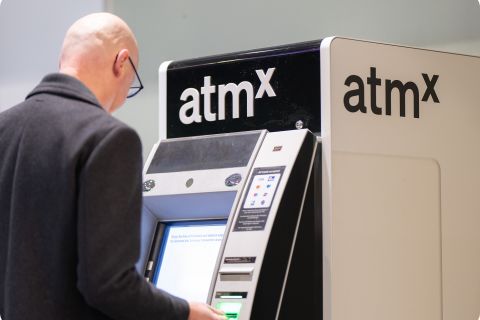Legal tender: bid to enshrine cash use
An independent MP has launched a Bill to penalise individuals and businesses that don’t accept cash. NSA prefers a non-punitive approach.

Retailers ‘not the enemy’
National Seniors has been campaigning to ensure that Australians have access to cash payments in addition to digital alternatives.
CEO Chris Grice said, “While NSA supports efforts for retailers to accept cash, our focus is on supporting those who do, not penalising those who don’t.
“Retailers are not the enemy. Continued bank closures and ATM removals make it harder to access cash and therefore harder to keep cash circulated and accepted.
“It appears mega profits are being placed before meeting customer needs and basic good old-fashioned customer service – this shouldn’t be the case.
“Thanks to NSA members – our proud ‘Cash Crusaders’ – we are engaging with retailers and continue to proactively support and promote those who accept cash.
“We acknowledge these retailers for ensuring their customers continue to have choice of payment methods, just as they always have.”
A crucial part of the NSA campaign is our “We accept cash” stickers, which are available for local businesses to display in their windows or at point of sale.
If you want to know more, click here.
An Independent MP has proposed new legislation that requires shops and other businesses to accept Australian notes and coins or face fines of up to $25,000.
Andrew Gee, who represents the electorate of Calare, centred on Bathurst in central New South Wales, introduced a Private Member’s Bill in Federal Parliament on Monday, 3 June, with the support of Bob Katter, the Member for Kennedy in northwestern Queensland.
Talking in support of the Bill on Tuesday, he noted that the use of cash had declined rapidly since the pandemic, and that many businesses no longer accept it as a form of payment.
Mr Gee told parliament, “The Australian Competition and Consumer Commission points out that businesses can choose what types of payment they will accept for a transaction as long as they make customers aware of this before the transaction takes place.
“In other words, carrying Australian banknotes, legal tender, is no guarantee that you’ll be able complete a purchase in cash. It’s at the discretion of the business.
“The Keeping Cash Transactions in Australia Bill 2024 will remedy this by legislating that businesses operating in face-to-face settings must offer to accept and, crucially, must accept cash payments for transactions that do not exceed $10,000.”
Under his proposal, individuals who prevented a cash payment of less than $10,000 would be fined up to $5,000, while businesses could face a $25,000 fine.
Exceptions would be allowed in certain cases, including circumstances where the use of cash posed a security risk.
Seconding the Bill, Mr Katter said, “It is definitely something for which the time has arrived. It is an imperative assertion of freedom and an underlying principle of our freedom – that is, the right to purchase something.”
Another independent MP, Dai Le, told the Sydney Morning Herald that many shoppers and retailers in her western Sydney seat of Fowler remained wedded to cash, partly because they mistrusted the financial system.
“It’s vital for our community in western Sydney, and in particular culturally and linguistically diverse communities because a lot of them do not trust the banking system,” she said.
Mr Gee noted that the Reserve Bank of Australia had found that Australians over 65 are the heaviest users of cash, and that older people in his electorate had told him “cash is not just a convenience – it’s a lifeline”.
He told parliament, “In these times of economic uncertainty and rising costs, cash is an essential tool for managing finances and sticking to a budget.
“Many senior Australians simply do not want to use cards for their transactions.
“Not everyone is able to use online banking services. Many find managing accounts and cards online to be stressful, and confusing.”
Mr Gee said cash was widely used in rural communities where people didn’t have ready access to banking services.
Treasurer Jim Chalmers has said that the government is “committed to ensuring Australians have continued and reliable access to cash”.
Last month, a Senate inquiry into rural banking services recommended the government guarantee “reasonable access to cash and financial services” for all Australians.
Debate on Mr Gee’s Bill will resume at the next sitting of Parliament. The SMH noted that the chances of it becoming law are remote, since only 30 out of 650 Private Members’ Bills presented to parliament since Federation have passed both Houses.
Related stories: SMH, Andrew Gee





